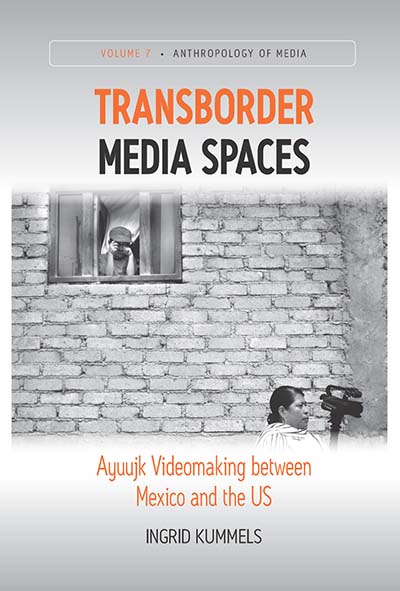“[This] work gives admirable depth to Ayuujk media as they shapeshift across nation-state borders. Such a detailed and locally embedded contribution to the study of Indigenous media in Latin America is likely to be of most value to fellow scholars and postgraduate students in Visual Anthropology and Indigenous Media studies.” • Bulletin of Latin American Research
“Media anthropologists and anthropologists of indigenous Latin America alike will encounter a wealth of fascinating material in Kummels’s exposition. The ethnographic highlight of the book is her meticulous, blow- by-blow presentation of the social drama surrounding the Second Continental Summit of Indigenous Communication in Abya Yala…[The book] will be of most interest to researchers with an interest in the way indigenous communities are creatively adapting media technologies for their own, heterogeneous purposes, especially as those communities are undergoing major social, cultural, political, and economic transformations.” • Anthropos
“This important book is a welcome contribution to anthropological studies of media and should be carefully examined by scholars and students interested in indigenous media, film production as a technology of knowledge, and audiovisual decolonization.” • Ulla D. Berg, Rutgers University
“Written in an engaging and accessible style, this thoughtful, nuanced book offers a crucial intervention that reshapes the way we think about indigenous media in the Mexican context. This is a compelling work about indigenous transnational migration and low-budget media in the techno-globalized world.” • Freya Schiwy, University of California, Riverside
Transborder Media Spaces offers a new perspective on how media forms like photography, video, radio, television, and the Internet have been appropriated by Mexican indigenous people in the light of transnational migration and ethnopolitical movements. In producing and consuming self-determined media genres, actors in Tamazulapam Mixe and its diaspora community in Los Angeles open up media spaces and seek to forge more equal relations both within Mexico and beyond its borders. It is within these spaces that Ayuujk people carve out their own, at times conflicting, visions of development, modernity, gender, and what it means to be indigenous in the twenty-first century.
Ingrid Kummels is Professor of Cultural and Social Anthropology at the Free University Berlin. She has conducted long-term ethnographic research in Mexico, Cuba, Peru and the United States, produced several documentaries and co-edited the volume Photography in Latin America. Images and Identities Across Time and Space (Columbia University Press, 2016).
LC: P94.5.M58 K86 2017
BL: DRT ELD.DS.161594
BISAC: PHO022000 PHOTOGRAPHY/Techniques/Cinematography & Videography; SOC044000 SOCIAL SCIENCE/Ethnic Studies/Hispanic American Studies; SOC002010 SOCIAL SCIENCE/Anthropology/Cultural & Social
BIC: JFD Media studies; JHMC Social & cultural anthropology, ethnography


